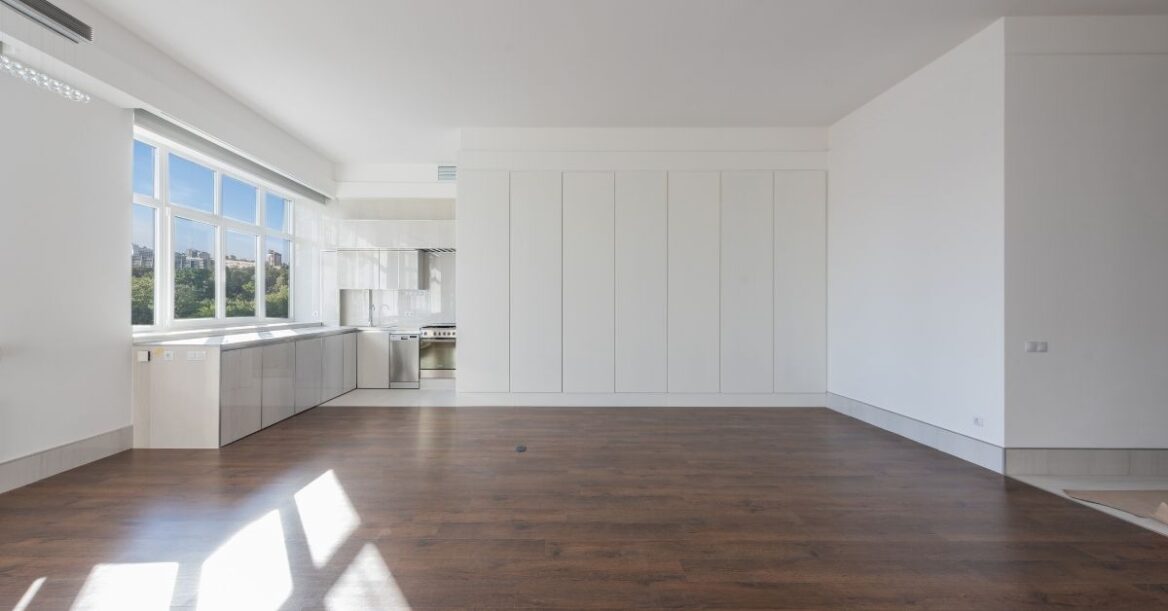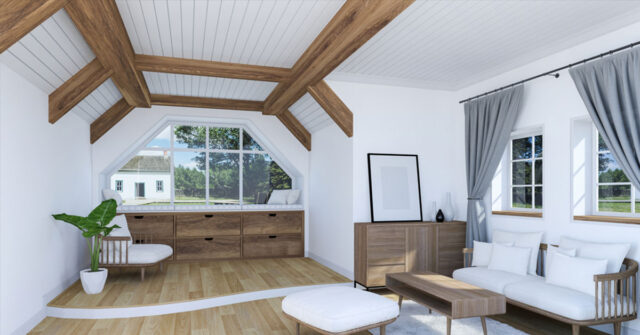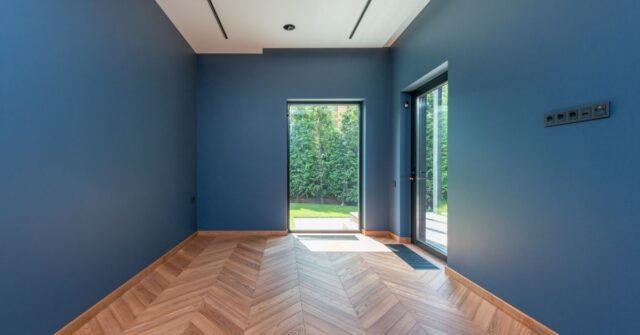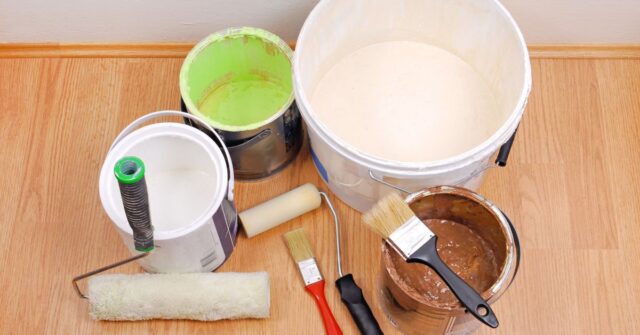Eggshell paint is one of those middle-ground finishes that quietly pulls its weight. It’s not too flat, not too glossy – just right for many everyday spaces.
But what exactly is it, and why do so many homeowners and painters swear by it?
Let’s dive into the facts, explore where it shines (literally and figuratively), and help you decide if it’s the right pick for your next paint job.
What Is Eggshell Paint?
Eggshell paint has a soft, low-sheen finish that looks similar to the surface of an eggshell – hence the name.
It strikes a balance between a completely matte look and higher-sheen options like satin or semi-gloss.


Understanding the Eggshell Finish
This finish provides a subtle glow under natural light but doesn’t reflect light too harshly. That makes it a go-to choice for homeowners who want a hint of texture without the shine.
Think of it like adding a soft-focus filter to your walls – it hides small flaws while still looking polished.
How Eggshell Differs from Other Paint Sheens
Unlike flat or matte paints, which can absorb light and show marks easily, eggshell is slightly more resistant to scuffs and easier to wipe clean.
On the flip side, it’s less glossy than satin or semi-gloss, so it doesn’t highlight every bump or crack in the wall.
Benefits of Eggshell Paint
Why do pros reach for eggshell again and again? It’s all about balance. This finish offers aesthetic appeal along with practical perks that work well in family homes, rentals, and even small commercial spaces.
Subtle Aesthetic Appeal
Eggshell gives walls a touch of sophistication without shouting for attention. It brings depth and dimension, especially in rooms with natural light.
If you want a finish that says “clean and elegant” without being dramatic, eggshell’s got your back.
Durability and Wear Resistance
Eggshell paint holds up reasonably well in areas with moderate traffic. It resists scuffing better than flat paints, making it suitable for places like living rooms, dining rooms, or home offices.
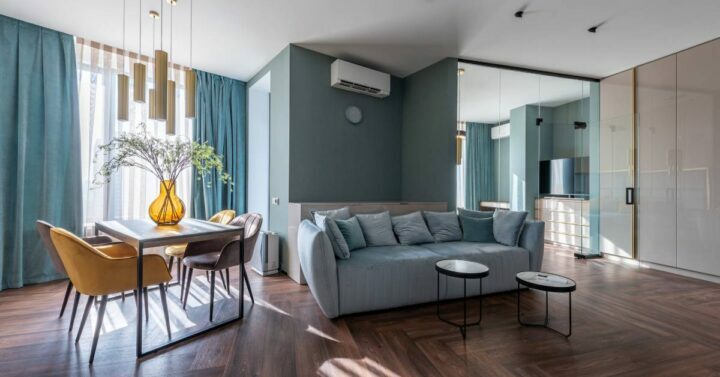

Ease of Maintenance and Cleaning
While it’s not as scrub-friendly as semi-gloss, eggshell can still handle a damp cloth or sponge. Kids’ fingerprints, mild splashes, or occasional dirt won’t spell disaster.
Just avoid using harsh chemicals or aggressive scrubbing – it’s paint, not armour.
Effectiveness in Hiding Imperfections
One of eggshell’s quiet strengths is its ability to hide surface issues.
Walls with minor dents, bumps, or previous patch-ups will look smoother thanks to their low reflectivity. Glossy paints highlight these flaws; eggshell does the opposite.
Ideal Applications for Eggshell Paint
Eggshell is like the dependable friend who gets along with everyone – it works in various rooms and on different surfaces. But it does have its limits.
Best Rooms and Surfaces to Use It
Common spaces such as lounges, hallways, and bedrooms are ideal candidates. It’s also a great option for ceilings if you want a bit more character than a flat white.
Some use it on furniture or feature walls too, especially where a velvety look is desired.
Why It Works Well in Medium-Traffic Areas
In busy zones like entryways or kitchens, you want something that holds up without looking too shiny. Eggshell hits that sweet spot.
It resists wear better than flat paint, and you won’t need to repaint every time the kids walk past with sticky hands.
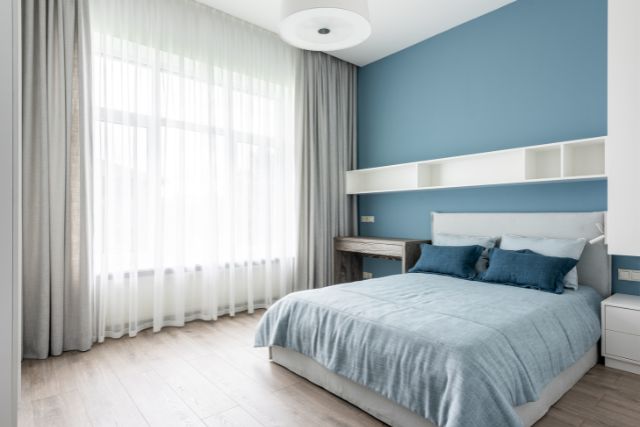

Not Recommended For: Situations to Avoid
Bathrooms, laundry rooms, or kitchen splashbacks? Not ideal. These spaces deal with high moisture, which calls for tougher, glossier finishes.
Eggshell might not hold up to repeated cleaning or exposure to steam in those environments.
Eggshell Paint vs. Other Paint Finishes
Choosing a finish is like choosing shoes. You wouldn’t wear thongs to a wedding, right? Let’s see how eggshell stacks up against its sheen siblings.
Eggshell vs. Matte
Matte paints are chalky and soak up light. They’re great for hiding flaws but are harder to clean.
Eggshell, while still soft-looking, has a slight sheen and wipes down more easily. If you have kids or pets, eggshell wins this round.
Eggshell vs. Satin
Satin finishes reflect more light and are tougher. They’re perfect for high-traffic areas like bathrooms and kitchens.
But that shine can expose wall imperfections. Eggshell offers a less reflective, smoother alternative for walls that aren’t flawless.


Eggshell vs. Semi-Gloss and Gloss
Semi-gloss and gloss finishes are very durable and moisture-resistant – think skirting boards, trim, and bathrooms.
But their reflective nature means they’ll spotlight every ding or crack. Eggshell, in comparison, gives a calm and consistent finish.
Tips for Choosing and Applying Eggshell Paint
Getting good results with eggshell isn’t hard, but it helps to follow a few best practices. From colour selection to application, these tips will help you avoid “what-was-I-thinking” moments later.
Choosing the Right Shade and Brand
Natural light, room size, and existing décor all play a role. Lighter colours make rooms feel bigger, while darker hues add drama.
Reputable brands like Dulux, Wattyl, or Taubmans offer eggshell options with consistent quality.
Preparing Surfaces for Best Results
Clean, sand, and patch before painting. Eggshell hides flaws, but it’s not a miracle worker.
If you’re painting over dark colours, apply a good primer first. The smoother the surface, the better the finish will look.
Application Tools and Techniques
Use a high-quality roller or brush. Cheap tools can leave streaks or lint. Apply two thin coats instead of one thick one for a more even finish. And let the first coat dry completely before going in for round two.
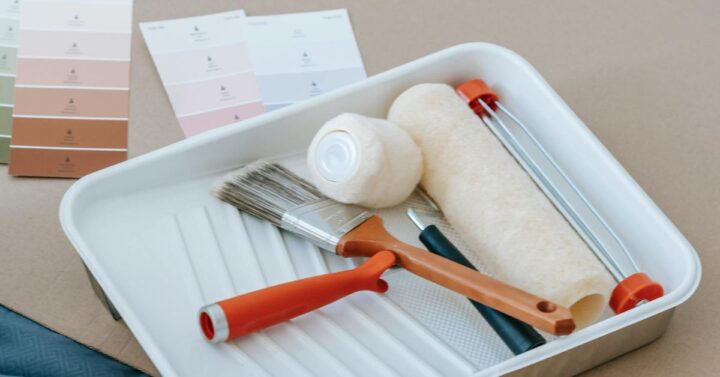

Maintaining Eggshell Painted Surfaces
Keeping eggshell walls looking sharp doesn’t take much effort. But a little care goes a long way.
Cleaning Methods That Preserve the Finish
Use a soft cloth or sponge with warm, soapy water. Avoid abrasive scrubbers, which can wear down the sheen. For tougher marks, try a mild detergent – but test it on a small area first.
How to Touch Up Eggshell Paint Without Streaking
Touch-ups can be tricky because the finish may look uneven. Feather out the edges and use the same batch of paint if possible. Better yet, paint from corner to corner on the entire wall to blend it seamlessly.
Final Thoughts
Eggshell paint might not be the flashiest choice, but it’s practical, easy to live with, and easy on the eyes.
It’s perfect for spaces where style meets function. For many homeowners, it strikes just the right balance.
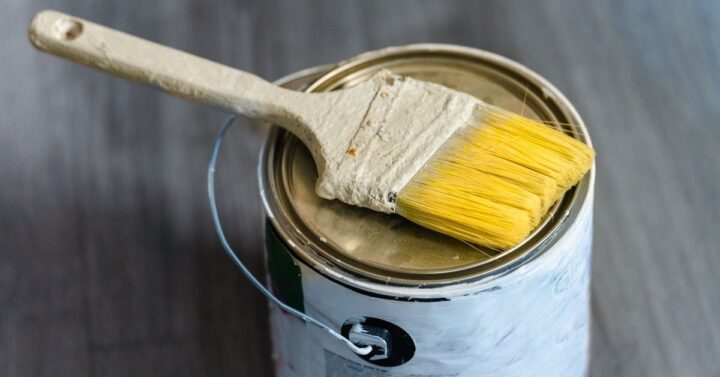

Is Eggshell the Right Finish for Your Space?
If you want a paint finish that’s classy, durable, and easy to clean, without being too shiny, eggshell is a solid contender. It’s versatile and forgiving, which makes it a favourite in Aussie homes.
When to Seek Professional Advice
If you’re unsure which finish to pick or how to prep your surfaces, talk to a local painter. A quick chat can save you time, money, and a few grey hairs.
And hey, if you’re painting for the first time, no shame in calling the pros.

